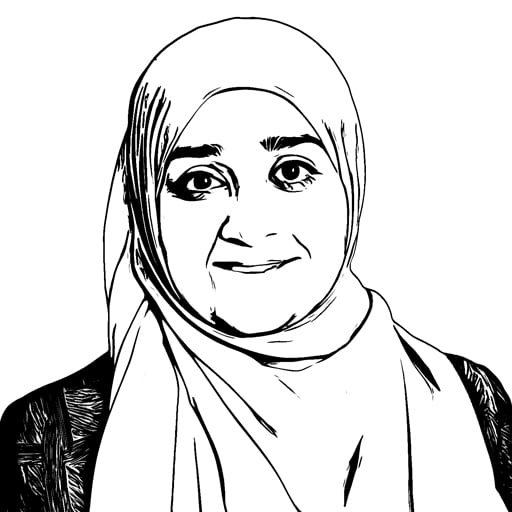In the time it takes to binge watch a Netflix series, another megaproject draws to completion in the bustling Middle East – that is how breathless, the pace of regional development is. These ambitious ventures across all industries, bring together diverse teams working tirelessly under the scorching sun, navigating complex processes and high-risk operations – often pushing the boundaries of human potential. In these extraordinary landscapes, your workforce is your most precious asset—and their health isn’t a checkbox, it is a lifeline.
Cutting corners on workplace health by entrusting ‘non-Occupational Health’ professionals is a risk no company can afford. The stakes are simply too high. This isn’t about routine check-ups or simple prescriptions. It’s about deep understanding—how the unique demands of our region’s challenging business landscapes directly impact human performance, safety, and business continuity.
Beyond traditional healthcare: The occupational health advantage
The distinction between a doctor who is not Occupational Health trained, and an Occupational Health physician is far more significant than most organisations realise. While traditional medical practitioners excel in treating individual health conditions, they often lack the specialised training to understand the intricate relationship between health and workplace dynamics.
This difference becomes particularly relevant in the Middle East’s diverse industrial landscape, where rapid development has led to unique occupational health challenges. From construction sites in Dubai to oil refineries in Saudi Arabia, each workplace presents distinct health and safety considerations that require specialised knowledge.
The hidden risks of inadequate occupational health support
Relying solely on general medical advice (in a non-Occupational Health capacity), for workplace health issues can lead to severe consequences. There are several cases where well-intentioned but “incomplete” health assessments have led to significant workplace incidents because of the lack of understanding of the workplace context.
For example, when a non-Occupational Health doctor clears an employee for work without fully understanding the job’s demands, they might inadvertently create safety risks for both the individual and their colleagues. Or on the flip side, an individual’s situation may not have a direct impact on their ability to do their specific job but may cause them their livelihood as there usually other psychosocial factors at play.
Profit and productivity: The business case for specialised occupational health
Recent research from Oxford University reveals that organisations that prioritise and invest in employee wellbeing are on average 20 per cent more profitable than those that don’t. However, achieving these results requires more than just implementing generic health initiatives. It demands a comprehensive understanding of both medical science and workplace dynamics—exactly what Occupational Health physicians bring to the table.

In the Middle East’s competitive business environment, occupational health physicians becomes invaluable by helping organisations:
- Develop targeted wellness programs using measurable data
- Reduce absenteeism and improve productivity
- Minimise workplace accidents and associated costs
- Strengthen ESG credentials in a rapidly diversifying economy
Bridging the gap between health and business
One of the unique aspects of Occupational Health physicians is their ability to serve as a bridge between medical expertise and business operations. Their role extends beyond treating injuries or illnesses as they are precisely trained to not only understand how health impacts business continuity but also how the demand in the workplace affects employee well-being.
This dual focus is particularly relevant in the Middle East, where rapid business growth has always been a clear-cut end goal but the increasing emphasis on the need for comprehensive employee welfare is becoming mainstream.
Occupational Health physicians help organisations navigate this balance by:
- Providing objective, medically-sound advice that considers both health and operational needs
- Helping develop policies that prevent stress and burnout
- Facilitating appropriate return-to-work programs
- Ensuring compliance with regional health and safety regulations etc.
Sustainable future needs a resilient workforce
For organisations in the Middle East looking to build sustainable, resilient workforces, investing in occupational health expertise is no longer optional—it’s imperative. The region’s unique combination of rapid development, diverse workforce, and challenging environmental conditions makes specialised occupational health expertise particularly valuable.
In the long run, having Occupational Health expertise creates a more resilient, sustainable workforce. This isn’t just about preventing accidents or managing illness—it’s about creating workplaces that truly support employee well-being while maintaining operational excellence and overall business growth.

Show me the money: Understanding the ROI
For company leaders seeking tangible proof of the value of Occupational Health programs, a data-driven approach is highly recommended.
By tracking metrics such as:
- Sick leave statistics
- Medical insurance payouts
- Legal claims
- Performance rates &
- Employee retention rates
- Injury rates and near misses
Organisations can clearly demonstrate the ROI (return on investment) in specialised Occupational Health expertise. This is particularly relevant in the Middle East’s data-driven business environment, where leaders expect clear evidence of value from their investments.
As the region continues its trajectory of rapid growth and development, standardised regulation and strict compliance becomes the norm – the role of Occupational Health physicians and professionals will only become more crucial. Their specialised expertise helps organisations navigate the complex intersection of employee health, workplace safety, and business success—ensuring that growth is both sustainable and responsible.









